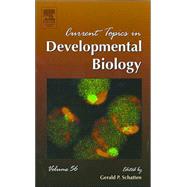
| Contributors | ix | ||||
| 1 Selfishness in Moderation: Evolutionary Success of the Yeast Plasmid | |||||
|
|||||
|
2 | (1) | |||
|
2 | (1) | |||
|
3 | (2) | |||
|
5 | (1) | |||
|
5 | (1) | |||
|
6 | (1) | |||
|
7 | (8) | |||
|
15 | (2) | |||
|
17 | (1) | |||
|
18 | (1) | |||
|
19 | (2) | |||
|
21 | (5) | |||
| 2 Nongenomic Actions of Androgen in Sertoli Cells | |||||
|
|||||
|
26 | (1) | |||
|
27 | (3) | |||
|
30 | (8) | |||
|
38 | (8) | |||
|
46 | (1) | |||
|
46 | (1) | |||
|
46 | (10) | |||
| 3 Regulation of Chromatin Structure and Gene Activity by Poly(ADP-Ribose) Polymerases | |||||
|
|||||
|
56 | (1) | |||
|
56 | (7) | |||
|
63 | (3) | |||
|
66 | (4) | |||
|
70 | (2) | |||
|
72 | (1) | |||
|
73 | (2) | |||
|
75 | (1) | |||
|
76 | (1) | |||
|
76 | (9) | |||
| 4. Centrosomes and Kinetochores, Who Needs 'Em? The Role of Noncentromeric Chromatin in Spindle Assembly | |||||
|
|||||
|
85 | (1) | |||
|
86 | (2) | |||
|
88 | (3) | |||
|
91 | (1) | |||
|
91 | (3) | |||
|
94 | (1) | |||
|
95 | (1) | |||
|
96 | (1) | |||
|
97 | (1) | |||
|
98 | (3) | |||
|
101 | (1) | |||
|
102 | (1) | |||
|
102 | (3) | |||
|
105 | (1) | |||
|
106 | (1) | |||
|
107 | (1) | |||
|
107 | (8) | |||
| 5 Modeling Cardiogenesis: The Challenges and Promises of 3D Reconstruction | |||||
|
|||||
|
115 | (2) | |||
|
117 | (1) | |||
|
118 | (10) | |||
|
128 | (4) | |||
|
132 | (6) | |||
|
138 | (2) | |||
|
140 | (5) | |||
| 6 Plasmid and Chromosome Traffic Control: How ParA and ParB Drive Partition | |||||
|
|||||
|
145 | (1) | |||
|
146 | (17) | |||
|
163 | (5) | |||
|
168 | (5) | |||
|
173 | (1) | |||
|
174 | (1) | |||
|
174 | (7) | |||
| Index | 181 | (16) | |||
| Contents of Previous Volumes | 197 |
The New copy of this book will include any supplemental materials advertised. Please check the title of the book to determine if it should include any access cards, study guides, lab manuals, CDs, etc.
The Used, Rental and eBook copies of this book are not guaranteed to include any supplemental materials. Typically, only the book itself is included. This is true even if the title states it includes any access cards, study guides, lab manuals, CDs, etc.